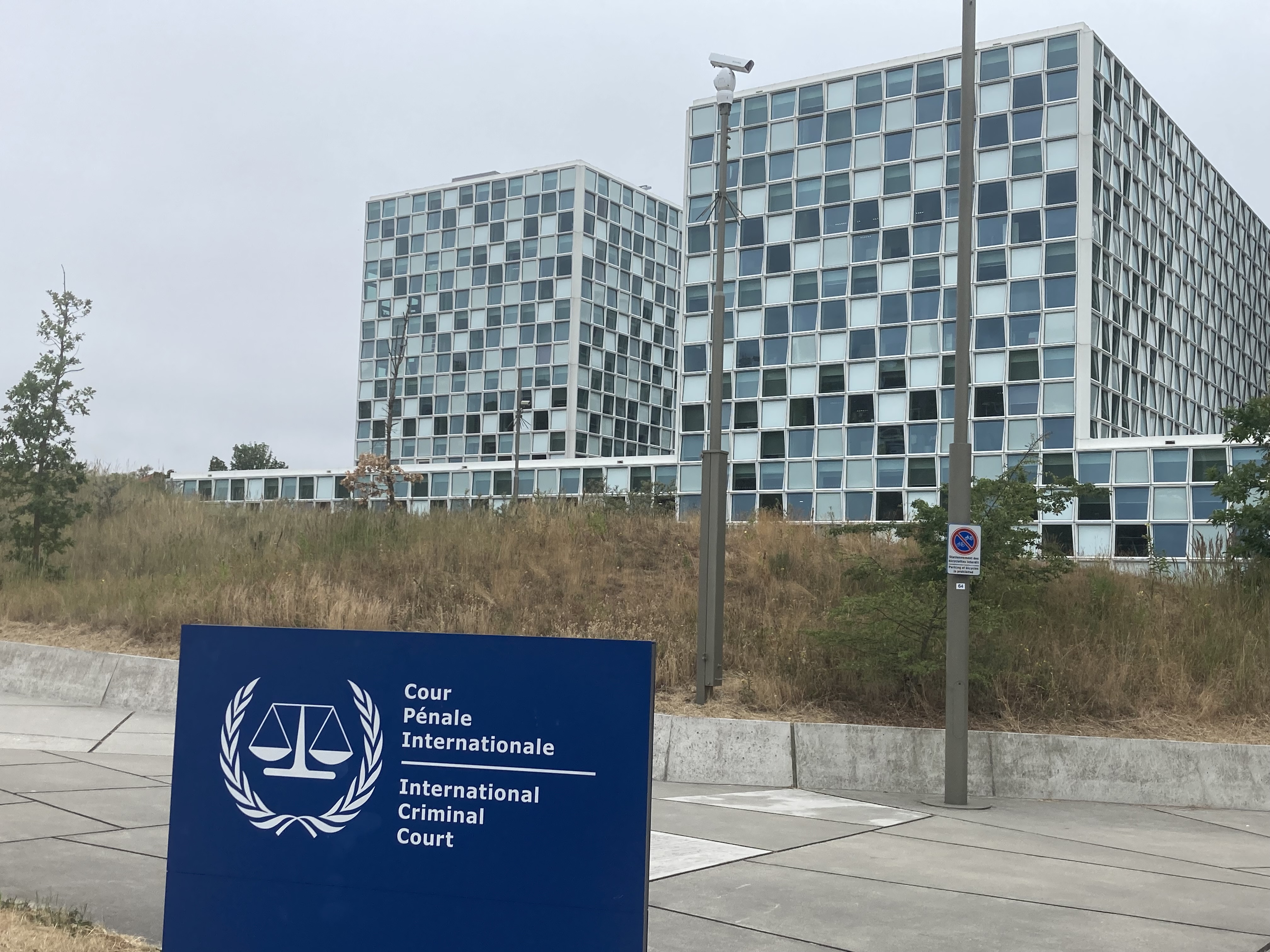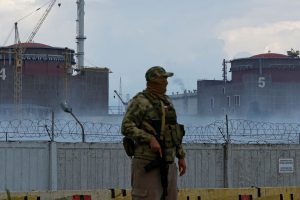The International Criminal Court: The Effectiveness vs Criticisms

The International Criminal Court (as ICC hereinafter) has been erected to accomplish justice in heinous and most serious crimes against humanity. However the debates of whether the basic aims in achieving justice and peace are being fulfilled, are highly significant. Out of thousands of potential cases being brought before the ICC, only a handful are successfully investigated and even lesser than that resulted in a complete proceeding[1]. The inconveniences along the pathway of achieving final verdict are challenging, whittling down public faith and the institution as a whole. The question is why ICC, despite being a well-established independent institution, is faced with tremendous amount of criticism? State cooperation being the major pillar in the success of ICC, shall be the moot point of this blog.
- Root Cause
Notably the ICC is a judicial institution without any independent police force and prison facilities. The institution relies on its 123 state members for cooperation and to abide by the Rome Statute. They are under the legal obligation to cooperate with the ICC from investigation stage till judgement and sentencing. Moreover they are mandated in, inter alia, freezing assets and taking measures for victim’s protection. However the willingness of such cooperation is tainted by international and regional politics, diplomatic relationships and state capacity[2].
Basically the principle obstacle is the mechanism in which ICC operates and this stems from main sources namely dependence on state cooperation, including state biases and domestic politics, and the tenet of natural justice. When it comes to justice, the ICC has faced numerous cumbersome difficulties. Despite the fact that the supporters of ICC have shown how the Court dispensing of justice has led to more peace, less desire for revenge by victims and promoting peace building and restorative justice, criticisms over the way ICC works have been the centre of the entire debate. For instance, in 2009, the ICC made a choice over justice to victims to compassionate peace. The release of the Lockerbie bomber, Abdelbaset Ali al-Meghrahi has swarm up a rage amongst the victims’ family. The reason for this early release was that the accused was terminally ill from cancer[3]. This shows that the concept of justice is far from being a prosaic concept and ICC being an international institution of justice is enmeshed in it.
- The Edifice for State Cooperation
The first reason behind the criticism of ICC is state cooperation. The latter is like the body parts of ICC without which the ICC will not be able to function properly. Unfortunately also being one of the major downside, the ICC cannot force the states to cooperate and assistance from states for a successful case to reach judgement and sentencing stage is of utmost importance. This has been backed up by article 87(1) of the Rome Statute where it states that if a state party fails to comply with ICC’s request to cooperate, the Court may render a finding to that effect. This shows that a state party may for his own convenience retire itself from providing his assistance to a case without any repercussion. This basically fails the whole purpose of the institution of attaining peace and bringing justice to the victims. State cooperation sets the stage when a case is initially recorded in ICC. For instance, the current cases of the Democratic Republic of Congo, Sudan, Uganda and Kenya have refused to cooperate with ICC in the arrest of potential suspects[4]. In 2008, the ICC sought to arrest one Bosco ‘The Terminator’ Ntanga which was never realised for political reasons despite the fact that such a decision would result into victims not having a chance at peace and justice[5]. Over the years cases like these surmised that the main obstacle debilitating the leitmotif of ICC will always be the interests of the states[6]. Importantly the ICC has witnessed success where the area of politics and government system are least touched[7]. Nonetheless victims’ rights are being gambled with and left outside the equation of what amounts to justice. As the other side of the coin portrays, ‘No mechanism will ever deliver perfect justice’[8], it means that there is more to justice than successfully prosecuting war criminals. But as the Permanent Court of Justice, the ICC’s preponderance in the justice equation should be bestriding. Despite each investigation is unique, the major issues on how ICC’s prosecution lead a case, including the consideration of the interest of powerful states, the vantage point of people on the extant of ICC’s legitimacy and the role of domestic and international politics and its institutions have been the potential root causes behind the success of the Court. This leads to the next issue; the effectiveness of ICC’s prosecution.
- The Prosecuting Body of the International Criminal Court
The ICC was established to eradicate impunity and prosecuting those who commit heinous crimes. This aim should be achieved through a fair process as adumbrated within the Rome Statute and the jurisprudence of the Court. However the acquittal of Gbagbo as well as other head of states against the crime of humanity did not epitomise the picture of justice and this have created a turmoil within the international law community. The reason of this exoneration lies with the Office of the Prosecutor (OTP)’s investigation methods and strategies[9]. Beginning from ICC’s the first case Thomas Lubanga (Prosecutor v. Thomas Lubanga Dyilo)[10], the Court’s judges expagorated that ICC has an evidence problem as well as ‘serious lack of oversight by the prosecution staff’[11]. Notably Article 61 provides for a low evidentiary threshold of ‘substantial grounds to believe’ that the suspect can be prosecuted for the alleged crimes and may make it till ‘confirmation of charges’. However failure at the very basis of the ladder, defeats the purpose of ICC. Furthermore Article 16 of Rome Statute limits the power of investigation of prosecution. First is the presence of a judicial control of the Pre-Trial Chamber set by Article 15 and second one is the political control by the United Nations Security Council. This means that the Prosecutor cannot, proprio motu, commence an investigation until he is authorised to proceed by the Judges of the Pre-Trial Chamber. Crucially Article 16 empowers the UNSC to stint or suspend any ongoing investigation or prosecution. This means that any initiative, ab ovo, taken by the prosecutor can be thwarted anytime and forbear the victims from justice. It can also be deduced that these barriers project the fear of the law drafters into giving immense, nay necessary, powers to the Prosecutor.
Insufficiency of evidence has also been one of the reasons leading OTP to withdraw charges. For instance in the case against the Kenyan President, Uhuru Kenyatta, the case could not proceed as there was not enough evidence to support the charges of having committed five crimes against humanity[12]. Conclusively if ICC goes on dismissing cases like these, it will have exonerated more alleged ‘war criminals’ than it has actually convicted[13] and this can be categorised as the biggest failure as an institution of justice. In 2013, the Pre-Trial Chamber maintained that the case of Gbagbo heavily relied on NGO reports and press articles when it came to the basic element of the charge. The Chamber held that evidence should be presented after a complete and intricate investigation. Three years following a trial, the case was dismissed as the prosecution once again failed to satisfy the burden of proof according to the requisite standard[14]. This creates a big lacuna in the modus operandi of the prosecution. A similar decision was taken in the case of Ruto and Sang where Judge Eboe-Osuji culminated “the weaknesses in the Prosecution case might be explained by the demonstrated incidence of tainting of the trial process by way of witness interference and political meddling that was reasonably likely to intimidate witnesses”. [15] It is simply preposterous and unfair towards victims that the defence side did not even have to object to the evidence of the prosecution. However it is also important to note that it is quite challenging for ICC to collect related evidence, witness statements amongst others where political interference remains a blatant issue.
As an analysis, the investigation methods and strategies can be traced directly to the policies initially framed by the first prosecutor that there should be small teams whose caveat would be to lead focused and short investigations. However this was later changed by his successor who implemented a scrupulously and open-ended investigation strategies and such cases should be ready for trial by confirmation of charges stage. Despite this implementation, the brunt is the budget of ICC being a potential obstacle for further development. Moreover it should also be taken into consideration the role the ICC plays in international arena, among high profiles risk instilling fears into world leaders. Additionally the OTP cannot be expected to attain convictions at all time. Nevertheless the basics to proceed with a case by gathering solid evidence should be well encysted and bolstered with reasonable powers for the prosecution.
Conclusion
As a light but impugnable conclusion, acquittals are indeed impregnated within the justice system which portrays the credibility of the Court or any tribunals for that matter. However cases are not stand-alone projects. They are filled with investigations, legal practices and policies where the OTP’s staging is mandated. Nevertheless, more acquittals than it actually convicts, despite all inconveniences and controversies, such international justice institution like ICC risks to lose the support of the key international actors.
[1] GOODMAN,S., The Effectiveness of the International Criminal Court: Challenges and Pathways for Prosecuting Human Rights Violations (April 15, 2020). Inquiries Journal, 2020, VOL. 12 NO. 09 http://dx.doi.org/10.2139/ssrn.4228603
[2] Ibid
[3] CLARK, J,N., Peace, Justice and the International Criminal Court: Limitations and Possibilities, Journal of International Criminal Justice, Volume 9, Issue 3, July 2011, Pages 521–545, https://doi.org/10.1093/jicj/mqr007
[4] GOODMAN,S., Ibid
[5] T. Bouwknegt, ICC ArrestWarrant Against ‘‘Terminator’’ Bosco Ntaganda (2008), available
at http://static.rnw.nl/migratie/www.rnw.nl/internationaljustice/icc/DRC/080429-ICCNtaganda-
redirected (visited 15 April 2010).
[6] M.C.BASSIOUNI, 2006. “The Icc- Quo Vadis” Journal of Criminal International Justice. P.426
[7]Ibid. (2)
[8] E. Blumenson,‘The Challenge of a Global Standard of Justice: Peace, Pluralism and Punishment
at the International Criminal Court’, 44 Columbia Journal of Transnational Law (2006) 801^874,
at 818.
[9] Patryk Labuda, “The ICC’s ‘evidence problem’: The future of international criminal investigations after the Gbagbo acquittal”, Völkerrechtsblog, 18 January 2019, doi: 10.17176/20190118-145208-0.
[10] ICC-01/04-01/06
[11]Prosecutor v. Kenyatta, ICC-01/09-02/11-728, para. 4
[12] The Prosecutor v. Uhuru Muigai Kenyatta ICC-01/09-02/11
[13] LABUDA,P., Ibid
[14] Ibid
[15] The Prosecutor v. William Samoei Ruto and Joshua Arap Sang ICC-CPI-20160405-PR1205

Quraisha Joomratty is a graduate of the University of Mauritius with a BA (Hons) Law and Criminal Justice and LLM Corporate Law. She further completed her Graduate Diploma in Law from the University of Central Lancashire, UK, a Masters in Business Administration from Istanbul Bilgi University and currently completing Formation 2 at the Istanbul Centre of International Law Centre. With 5 years of experience in the legal field, Quraisha is interested in Criminal Law and Human Rights Law.



